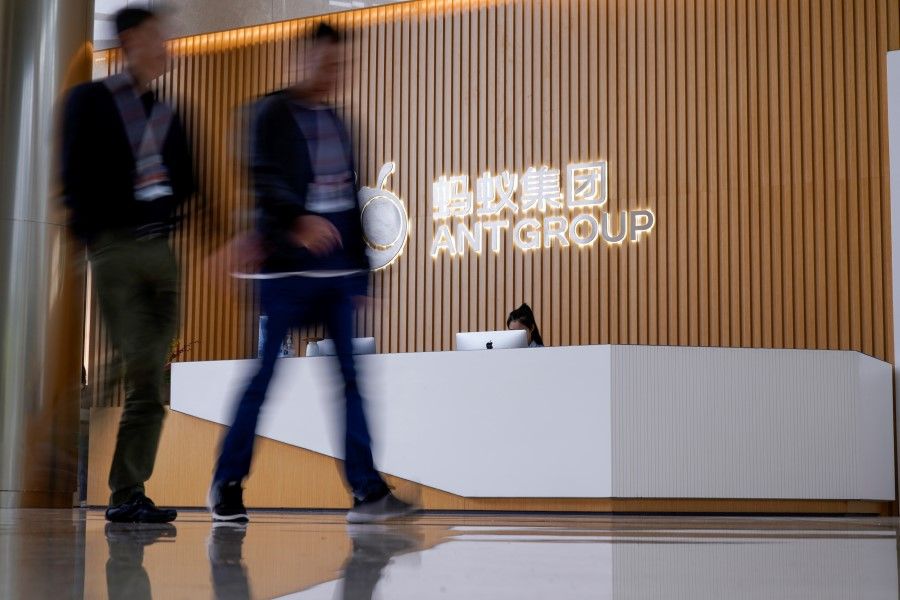Lesson for Jack Ma's Ant: Finance is finance and technology is technology

In recent years, online finance or fintech (what it is matters more than its name) has been prominent, and a lot of funding and talent has flocked towards this sector. However, over the past few years, it has lost its shine, and many people have even been jailed. What are we to make of this? So many companies call themselves fintech companies; what is fintech, and what kind of industry is it? The fact is, everyone is puzzled by these questions.
As a leader in so-called fintech, the Ant Group was once unrivalled. But founder Jack Ma's speech at the Bund Summit sparked reflections by regulators, academics, businesses, and industry players. Last week, the People's Bank of China (PBOC) released a report on its meeting with Ant - one might say that was the best footnote to fintech.
These requirements - from data management, regulation, capital regulatory requirements, to product scale - lay down the rules and strike at Ant's points at issue.
Getting Ant Group to fall in line
Adjustments to Ant include: first, correcting improper competition in its payments business and give consumers more choices in payment methods, and end "inappropriate" links between Alipay and its other financial products Huabei and Jiebei, and correct its unlawful behaviour of inserting credit operations in the payment process.
Second, breaking the information monopoly and satisfying the requirements of the Regulation on the Administration of Credit Investigation Industry, and engage in licensed personal data collection according to the law, and only collect and use "legal, minimal, and necessary" personal information, to safeguard personal and national data security.

Third, the Ant Group will apply to become a financial holding company, which will regulate all of its organisations involved in financial activities, improve risk management measures, and plan connected transactions.
Fourth, abiding by regulatory requirements and improving corporate governance, and revising irregular financial activities such as credit, insurance, and financial management, as well as controlling high leverage and financial contagion.
Fifth, reducing the liquidity risks of its investment products and shrinking the assets under management of Yu'ebao, its giant money-market mutual fund. Financial regulators will ensure the Ant Group makes the necessary adjustments and keeps a grasp of its situation so that it can maintain continuity and regular operations, to make sure there is no drop in users' financial experience, and that it will continue to improve financial services standards for all.
These requirements - from data management, regulation, capital regulatory requirements, to product scale - lay down the rules and strike at Ant's points at issue.
New regulations for platform businesses with financial operations
Now, a look at the regulatory requirements for platform businesses involved in financial operations.
Financial regulators will stick to the principles of fair and strict governance, and will work on the present with a long-term view in mind; it will strengthen its weak points, encourage fair competition, as well as oppose monopoly and prevent the disorderly expansion of capital.

One: finance is the foundation and the use of technology is for empowerment. Platform businesses going into finance should do so to serve the real economy and prevent financial risk, rather than use technology as a camouflage for illegal or irregular activities, which should be investigated and dealt with according to the law.
Two: all financial activities must come under financial regulation, and all financial businesses have to be licensed. Regulation capabilities and standards have to be raised and regulatory frameworks improved to prevent regulatory arbitrage.
Three: growth and regulation are equally important. It is necessary to strengthen regulation according to rule of law, set market standards, prevent market monopolies, and safeguard data ownership and personal privacy. It is also necessary to master the development trends of the platform economy, improve financial services experience, and increase the global competitiveness of platform businesses.
Financial regulators will continue to stand by two unchanging goals: one, create a fair market environment for competition, and continue to support private capital to carry out fintech activities in accordance with the law; two, protect property rights and encourage the entrepreneurial spirit, so as to strengthen private capital market and technology innovation capabilities.
...fintech is not something new.
Technology for empowerment
These also strike at the points at issue and clearly demonstrate the relationship between finance and technology: finance is the foundation and the use of technology is for empowerment.
Hence, fintech is not something new. From the start, finance and technology have been closely linked. Fundamentally, fintech is technology empowering the finance sector by making financial operations more efficient and reducing costs. The financial sector has always been strictly regulated by the government due to the nature of its business, mainly in risk externalities. In recent years, quite a few people have started financial businesses outside of the regulatory framework under the guise of online finance or fintech, only to end up in trouble.

Strictly speaking, there are no so-called "new" fintech companies.
So-called fintech is first, companies using technology to improve the efficiency of financial operations and making gains out of financial activities, which need to be regulated; second, companies providing technological capabilities to financial businesses and making gains out of the latter. These two scenarios come within the realm of fintech.
Hence, finance is finance and technology is technology.
This article was first published in Chinese by Caixin Global as "金融归金融,科技归科技". Caixin Global is one of the most respected sources for macroeconomic, financial and business news and information about China.
Related: China's tightening fintech regulations may benefit Ma Yun's Ant in the long term | Is Alibaba leaving its carefree days behind? | Alibaba probe: China's challenges in dealing with monopolies start with the state-owned enterprises | Regulating new technologies: Singapore and China can work together

